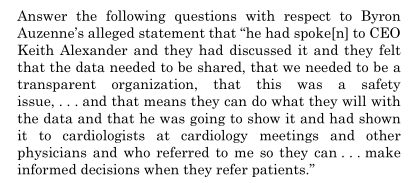In 2011, the Texas Legislature enacted the Texas Citizens Participation Act, a type of statute that is known nationally as an anti-SLAPP (“Strategic Lawsuit Against Public Participation”) act. As with other anti-SLAPP laws, the TCPA gives litigants the right to file a motion to dismiss if the claim involves their “exercise of the right of free speech, right to participation, or right of association.” Tex. Civ. Prac. & Rem. Code § 27.003(a). The filing of such a motion stays discovery in the case (except on a showing of good cause) and puts the burden on the claimant to establish a prima facie case for each element of the claim. Id. §§ 27.003(a) & 27.005(c). The motion has to be heard within 30 days of filing, and the court must rule on the motion within an additional 30 days or the motion is deemed to be denied by operation of law. §§ 27.004, 27.005, 27.008(a). If the motion is overruled by operation of law, the TCPA grants the movant the right to an interlocutory appeal. Id. § 27.008(a). In short, the TCPA is a powerful tool for the defendant in a defamation case, requiring the plaintiff to prove early in the case that it already has evidence supporting each element of the defamation claim, and potentially taking the case out of the hands of the trial court altogether.
(Strangely, the statute does not expressly grant the movant the right to appeal if the trial court timely denies the motion to dismiss. See Lipsky v. Range Prod. Co., 2012 WL 3600014 (Tex. App.-Fort Worth Aug. 23, 2012, pet. filed). It is unclear whether anything will be done to fix that apparent oversight in the coming legislative session, or whether the Supreme Court will find authorization for such an appeal implicit in the statute.)
The Dallas Court of Appeals has now become one of the first appellate courts to weigh in on the substance of the TCPA. In Avila v. Larrea, an attorney sued Univision and one of its reporters after they broadcast a story suggesting he had engaged in misconduct against some of his clients. The defendants filed a motion to dismiss pursuant to the TCPA and the trial court conducted a hearing. But instead of ruling on the motion itself, the trial court found good cause to permit 90 days of discovery and continued the hearing until that discovery was completed. After 30 days, however, the defendants filed their interlocutory appeal, arguing that the appeal was authorized because the motion was automatically denied after 30 days. The court of appeals agreed, then went on to hold that the plaintiff had failed to produce sufficient evidence that the alleged statements were false, or that the broadcaster had failed to exercise due care to prevent other people from making defamatory statements in the broadcast. The court of appeals therefore rendered judgment in favor of the defendants and remanded to the trial court to consider an award of damages and costs against the plaintiff.
Avila v. Larrea, No. 05-11-01637-CV







